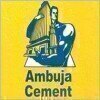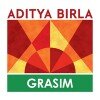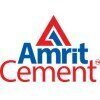Filter interviews by
AKB Glass System Store Officer Interview Questions and Answers
Be the first one to contribute and help others!
Interview questions from similar companies

I applied via Walk-in and was interviewed before May 2021. There were 2 interview rounds.

Store procedure
Interview Preparation Tips
- Presentation Skills
- Management Skills


(2 Questions)
- Q1. Regarding the stores lavel, maintain the stores.
- Q2. Regarding the stores how to manage and
Interview Preparation Tips

I appeared for an interview before Oct 2022.

(2 Questions)
- Q1. When I had applied Aditya Birla Group Co Vikram Ispat in 1990, I had worked for about 10 yrs in Govt Undertaking Co & 3 yrs in another Chemical producing Co with similar type of responsibilities. So they...
- Q2. Sorry, that I can't disclose.

I applied via Recruitment Consultant and was interviewed in Jan 2021. There were 3 interview rounds.
Interview Questionnaire
1 Question
- Q1. HAVE QUESTION RELATED TO WHAT I DO TO WORK ON COMPANY , LIKE WICH TYPE OF WORK YOU DO , YOU WORK IN SYSTEM .
Interview Preparation Tips

I applied via Naukri.com and was interviewed in Apr 2024. There were 3 interview rounds.
(2 Questions)
- Q1. Knowledge of store
- Q2. What do you know about store
- Ans.
A store is a physical or online location where goods or services are sold to customers.
Stores can sell a variety of products such as clothing, electronics, groceries, and more
Stores can be brick-and-mortar locations or online platforms like Amazon or Etsy
Stores often have sales, promotions, and discounts to attract customers
Stores may offer services such as repairs, alterations, or consultations
Stores can be independen...
(2 Questions)
- Q1. What are types of inventory
- Ans.
Types of inventory include raw materials, work-in-progress, finished goods, and MRO supplies.
Raw materials - materials used in the production process
Work-in-progress - partially completed products
Finished goods - completed products ready for sale
MRO supplies - maintenance, repair, and operating supplies
Example: Raw materials for a furniture manufacturer would include wood and fabric
- Q2. Raw material, working in progress and finished good
(1 Question)
- Q1. What do you understand by FIFO, lifo
- Ans.
FIFO stands for First In, First Out and LIFO stands for Last In, First Out.
FIFO is a method of inventory valuation where the first items purchased are the first ones sold.
LIFO is a method of inventory valuation where the last items purchased are the first ones sold.
FIFO is commonly used in industries with perishable goods like food, while LIFO is used in industries with non-perishable goods like electronics.
FIFO result...
Skills evaluated in this interview

I applied via Naukri.com and was interviewed in Oct 2023. There were 2 interview rounds.

(2 Questions)
- Q1. Normal and responsibilities
- Q2. Nothing special more about your over all experience
Interview Preparation Tips

Interview Questionnaire
1 Question
- Q1. My question is that a recruiter may be a chance to fresher that he may be apply different field have no experience after training he is finalist.
Interview Preparation Tips

Interview Questionnaire
2 Questions
- Q1. What was job professional
- Q2. My job etp plant & operating & process &project site work

I applied via Campus Placement and was interviewed before Apr 2021. There were 2 interview rounds.
Technical round regarding ur subject
(1 Question)
- Q1. All questions regarding ur subject only
Interview Preparation Tips
- Cost Accounting
- Financial Management
- Business Economics

I appeared for an interview in Mar 2025, where I was asked the following questions.
- Q1. How can prepare cement
- Ans.
Cement is prepared by mixing raw materials, heating them, and grinding the resulting clinker into a fine powder.
1. Raw Materials: Common materials include limestone, clay, and iron ore.
2. Crushing: The raw materials are crushed into a fine powder.
3. Mixing: The crushed materials are mixed in the correct proportions.
4. Heating: The mixture is heated in a kiln at about 1400-1600°C to form clinker.
5. Grinding: The clinker...
- Q2. Which materials are used in cement
- Ans.
Cement is primarily made from limestone, clay, and other materials, which are processed and heated to create a fine powder.
Limestone: The main ingredient, providing calcium carbonate.
Clay: Supplies silica, alumina, and iron oxide.
Gypsum: Added to control the setting time of cement.
Fly Ash: A byproduct from coal combustion, enhancing strength.
Slag: A byproduct from steel production, improving durability.
- Q3. Which type of minerals mixed in cement
- Ans.
Cement is primarily made from minerals like limestone, clay, and gypsum, which contribute to its strength and durability.
Limestone: Provides calcium carbonate, essential for clinker formation.
Clay: Supplies silica, alumina, and iron oxide, aiding in the chemical reactions during cement production.
Gypsum: Added to control the setting time of cement.
Other minerals: Fly ash and slag can be mixed to enhance properties and
Tell us how to improve this page.
Interview Questions for Popular Designations
- Store Incharge Interview Questions
- Store Executive Interview Questions
- Store Supervisor Interview Questions
- Senior Executive - Stores Interview Questions
- Asst Store Interview Questions
- Senior Store Officer Interview Questions
- Assistant Store Officer Interview Questions
- Assistant Store Keeper Interview Questions
- Show more
Store Officer Interview Questions from Similar Companies

UltraTech Cement

JK Cement

Grasim Industries

ACC
- Home >
- Interviews >
- AKB Glass System Interview Questions >
- AKB Glass System Store Officer Interview Questions






